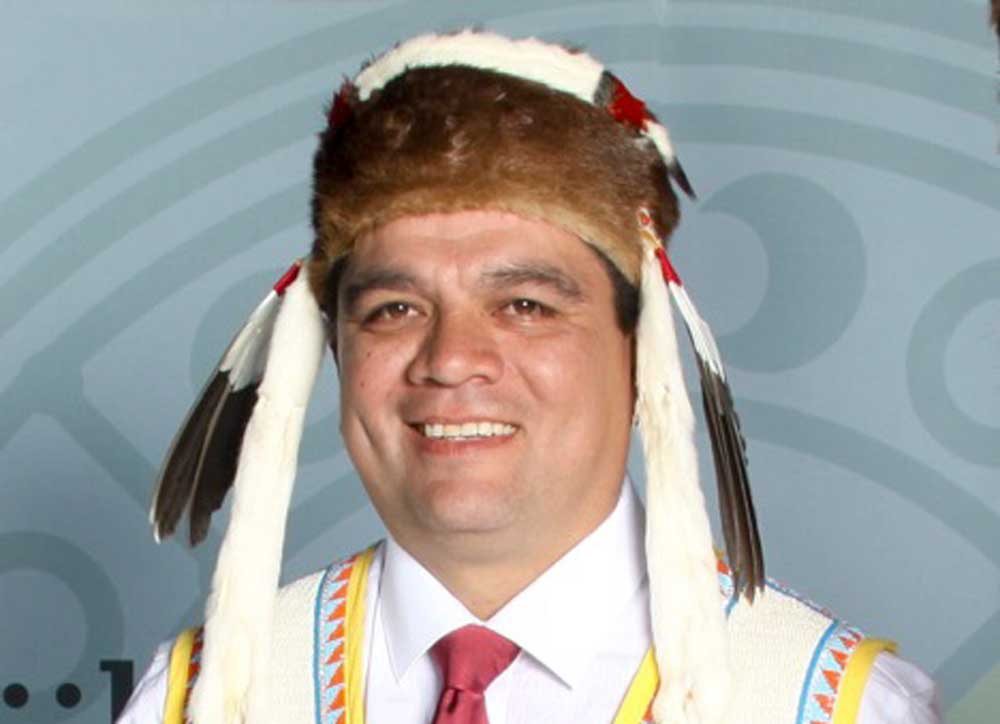ONTARIO – Yesterday, April 13, the Ontario Court of Appeal began to hear Ontario’s appeal of the first-stage decision in the Robinson-Huron Treaty (RHT) annuities case. While the province appealed the stage one ruling, the Canadian government did not do so.
“We’re going through this exercise through the courts which, in our view, isn’t necessary because there are those promises that were made through treaty that were very clear in its intent to augment this annuity,” said Wiikwemkoong Ogimaa Duke Peltier, a spokesperson for the RHT trust.
The RHT annuities case, started in 2014, centres around annual payments to signatories of the RHT of 1850.
Several Indigenous peoples located north of Lake Huron, including on Manitoulin Island, signed the treaty more than 170 years ago. It allowed the British Crown and its people to access resources from the land, in exchange for compensation to members of the First Nations whose peoples signed the treaty. There are 21 present-day First Nations that represent original signatories of the treaty.
In 1850, the Crown agreed to pay each RHT Indigenous person $2 in exchange for the privilege of accessing the natural resources of present-day Ontario. That number had grown to $4 per person per year by 1874 but it has not increased since that time.
The annuities case is split into three components: first, to determine if the treaty required the Crown to manage the lands and act in the best interests of the First Nations in a way that was unique to this agreement; second, to listen to arguments from the Crown about why it feels it should not have to increase the annuity or compensate signatories for prior years if the annuity is deemed to have been too low; and third, to determine how much is owed, what obligations exist for each of Ontario and Canada, and at what level the annuities should be set for the future.
Batchewana First Nation Chief Dean Sayers, another spokesperson for the RHT trust, said First Nations have been ready for a long time to have meaningful discussions with Ontario and Canada about fulfilling their respective negotiations. He added that if the courts make the ultimate ruling on what is owed to treaty beneficiaries, it will likely end up costing a higher amount than if the Crown’s representatives negotiate a deal with RHT signatories directly, due in part to the ongoing costs of litigation.
“There’s a perfect opportunity to save taxpayers a lot of money, to be able to have really fruitful discussion and negotiations, and truly work on the original spirit and intent of how this relationship was supposed to be evolved. And that not only includes talking numbers but how are we going to relate? How are we going to share jurisdiction?” he said.
Chief Sayers noted the discrepancy between the intergenerational impacts and poverty that many First Nations have faced in contrast to the mass economic benefits that colonial governments have derived from extracting resources on the traditional territories of treaty signatories.
Ontario appealed the first and second stages of the trial, examining the unique fiduciary responsibilities of the Crown in the first and a rejection of the Crown’s defences in the second. The appeal of the first portion is underway; both of the first two phases were in favour of First Nations.
Both of the spokespersons seemed confident in the First Nations’ ability to win the appeal and said they expected a favourable ruling to show that Ontario’s arguments are not rooted in justice, truth and the spirit of the treaty.
“You can’t keep holding up the process, Ontario. You have an obligation to your people: they want to see resolution. I’m just hoping these appeals will be abandoned, even this stage one appeal—they could abandon it today,” Chief Sayers said.
The appeal of the first stage of the trial began with opening ceremonies and opening statements on April 13, with main submissions to come on April 20-23 and 26-28.
Ontario has the final word of the appeal on April 28, according to a RHT litigation fund notice from April 9. The RHT chiefs are asking Ontario to stop its appeals and follow the annuity growth clause in the original document.
Both Ogimaa Peltier and Chief Sayers said they expected Ontario to argue that the Anishinaabe negotiators in the 1850 treaty did not understand the concept of an annuity that would increase over time; this component, however, had already been implemented in other Great Lakes region treaties and Anishinabek worked to ensure a similar clause would get them a fair amount.
“The provincial government is acting contrary to those original expectations around how we were going to live together in harmony and share—not only the value of the natural resources but share the insights, how to look after these lands,” said Chief Sayers.
An important note in any discussions of historic treaties are that every individual in Canada is a ‘treaty person.’ Matters relating to treaties between colonial governments and Indigenous peoples affect every person because Indigenous peoples were the original inhabitants of these lands and colonial forces were only allowed to stay and make use of the resources in present-day Canada because they reached agreements with Indigenous peoples centuries ago.
Part of the reason for Ontario’s appeal, it said, was because of disputes over the individual responsibilities the province and the federal government had for compensating treaty signatories, an impasse that partly led to the lack of increases in annuities for 147 years.
That jurisdictional impasse is a long-standing issue with Crown-Indigenous relations, including in the Jordan’s Principle case when a five-year-old Cree boy died in 2005 while Manitoba and Canada argued over which government should pay for his medical care.
With the first two stages complete, barring appeals, the legal teams are now preparing for the third and final phase of the case in March 2022, which will determine what the compensation should be and the nature of Crown-Indigenous relationships going forward. The first stage of litigation, before this appeal, has already cost $9 million.





